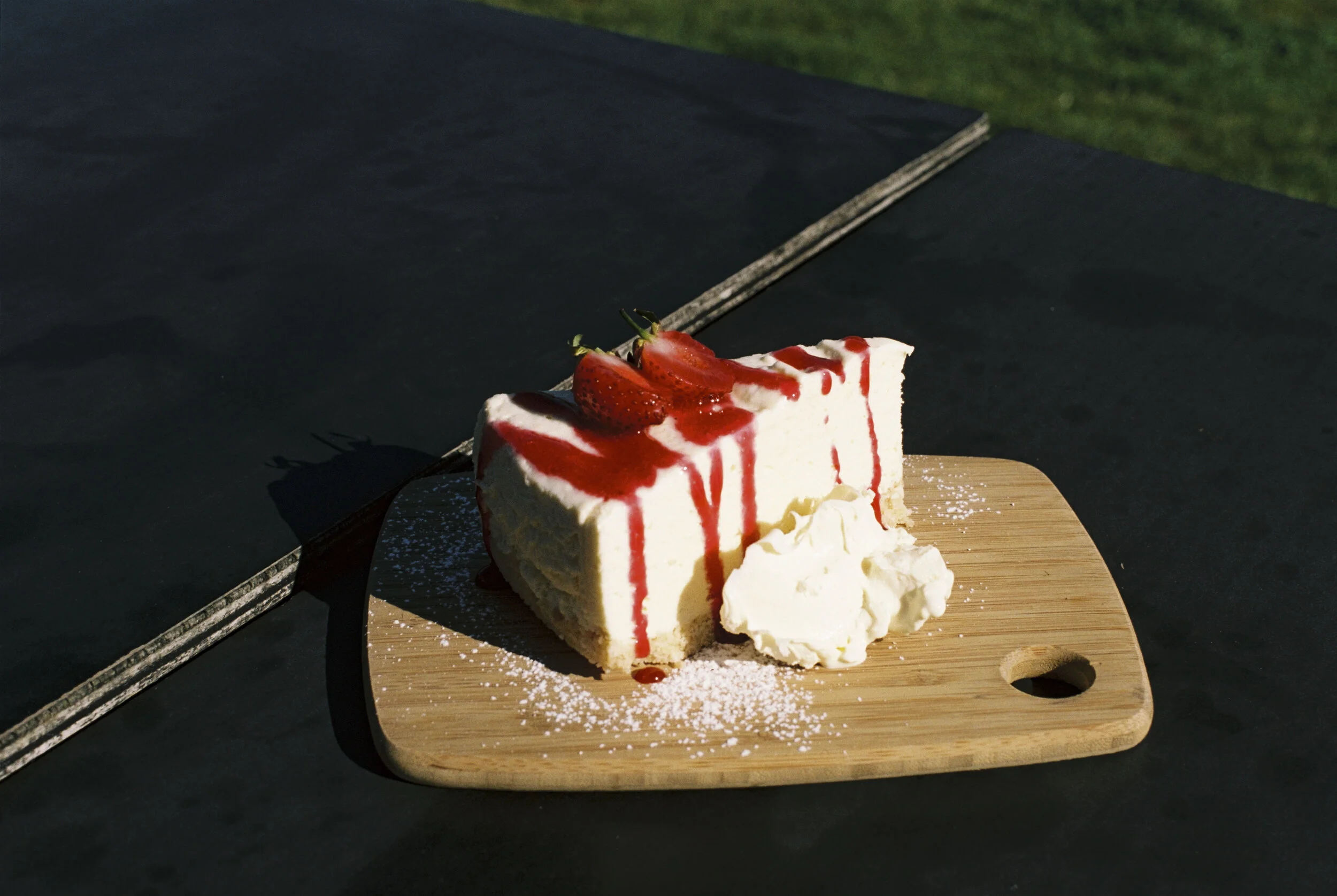To say we have given up on something tends to mean we have stopped trying to make something work that we initially thought was worthwhile. In this sense, giving up could be synonymous with failing to attain our heart’s desire.
On the other hand, to say we have given something up tends to mean we have decided to eliminate a habit which we have found to have a negative influence in our life. In this sense, giving up promises to bring us personal growth and a fulfilled life.
Isn’t it fascinating that the idea of giving up can bring such different effects into our lives?
It is the latter meaning of giving up that I wish to explore a bit more in this post.
The Pyengana Valley, idyllic dairy country, carved out of the bush in the early 1900s by European settlers. 2020, Pentax MX, 50mm, Portra 400.
To give something up, means to relinquish a habit which no longer serves us. Giving up addictive habits, giving up the use of fossil fuels, giving up a neo-liberalist view of the world, giving up the attitude of commodifying nature, giving up the habits that make us ill, these are all examples which could fall into this category.
There is a series of events that need to happen before we arrive to the point of being ready to give something up. The desire to change a habit which has become engrained in our daily practice comes from conflict; we do not see the need to relinquish a habit that we have come to find beneficial unless it clearly diminishes something that we value.
The road into Rainbow Valley. 2020, Pentax MX, 50mm, Portra 400.
Let’s take the idea of eating cheesecake for example. People eat cheesecakes because they taste good, especially when they are served with some berries. However, we intuitively know that cheesecake is not necessarily good for us or for the cows that produce the milk from which the cheesecake is made. But because cheesecake tastes so goddamn good, we tend to indulge from time to time.
Now let’s consider a scenario here.
Johnny has been eating cheesecake for as long as he can remember. One day he visits the dairy farm where the milk is produced for his cheesecakes. He sees the anguish the cows go through when they are separated from their young calves. Johnny is quite shocked at the level of distress and suffering the animals have to endure in order to produce the milk required to make his cheesecake.
Johnny is now faced with a difficult decision; does he continue eating the same cheesecake now that he knows the suffering that is involved in the making of it?
And this is the heart of the matter. The extent of how much we care for something or someone is defined by what we are willing to give up for it or them. If Johnny cares more about the welfare of cows than he does for the taste of cheesecake, he will give cheesecake up. However, if he values eating cheesecake over the cows, he may choose to ignore the suffering that goes on behind the scenes.
Let’s find out what happened to Johnny in the second half of this scenario.
After his discovery, Johnny stopped eating all dairy products. He drank no more milk, and he ate no more cheesecake. But after a few months, he really started missing the taste of cheesecake. So he began to investigate the quality of life of cows on various farms around the town where he lived. He found that all the big dairy farms treated their animals pretty much equally horribly. Then, he discovered the farm of an older couple who ran a small scale operation in which the cows were treated much more fairly and were milked by hand. And so Johnny asked to buy his milk from the old couple from that point forward. And from that milk, Johnny was able to make a cheesecake that tasted much better than the cheesecake he used to eat. The End.
Cheesecake or not to cheesecake, that is the question. In this case, we were bike touring and I couldn’t eat enough calories, so the answer had to be… cheesecake! 2020, Pentax MX, 50mm, Portra 400.
At the end of the day, we choose that which we care about most. And sometimes, if we choose to keep the thing or person we love the most, we need to be willing to give something up. It is through our willingness to give up certain habits that we can show how much we truly care.
A.S. 9/10/2021, Lenah Valley



